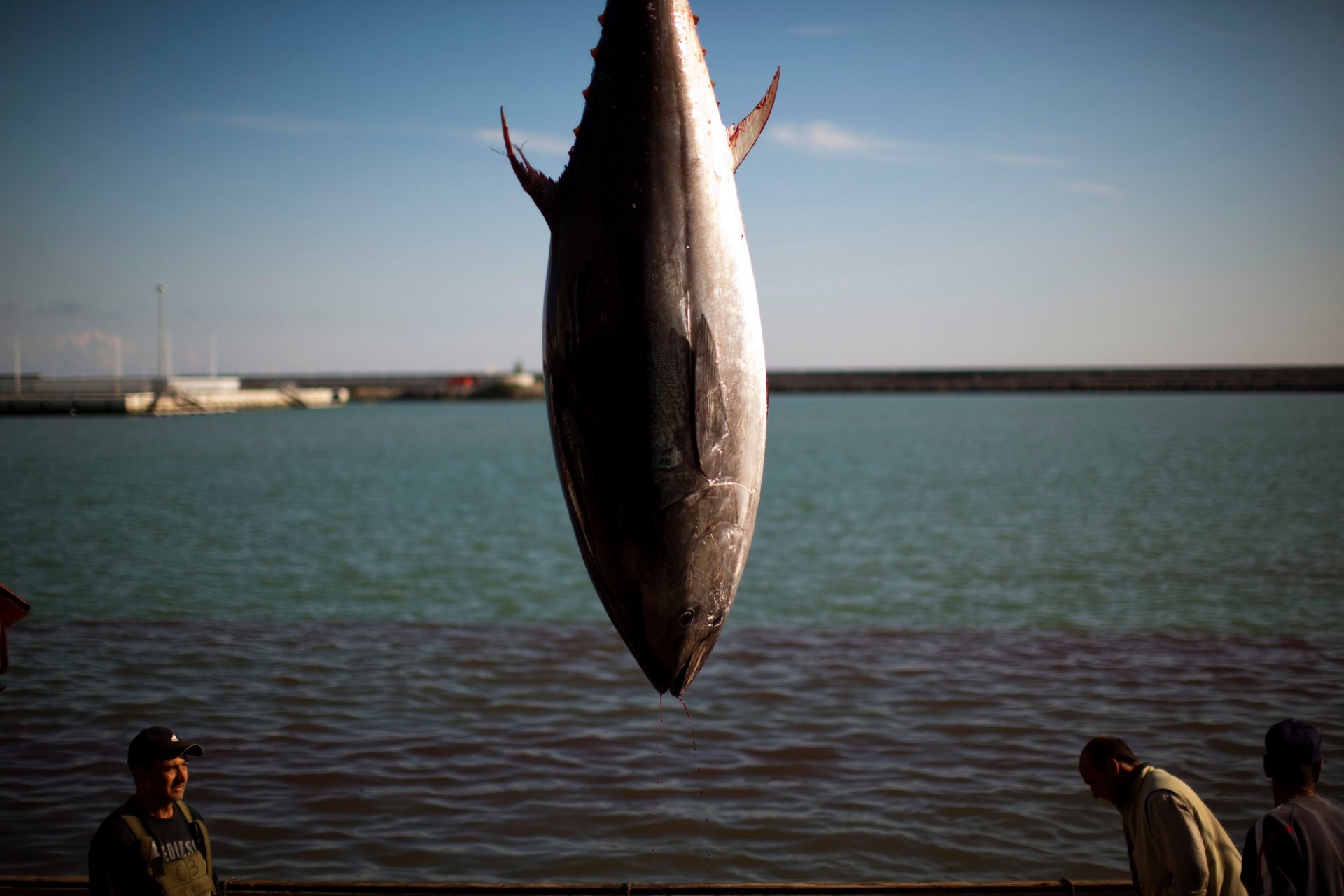The world’s tuna and mackerel populations are in a “catastrophic” decline
The ocean’s bounty of protein-rich fish is dwindling drastically.


The ocean’s bounty of protein-rich fish is dwindling drastically.
More people than ever rely on fish for food, and on fishing as a source of income. According to the UN Food and Agriculture Organization, fish accounts for 17% of the world’s protein intake; in some developing countries, it accounts for up to 70% of the protein in citizens’ diets. But according to a report published today (PDF) by the World Wide Fund for Nature and the Zoological Society of London, the marine species people most like to eat are the ones whose populations have shrunk by nearly 75% over the past 40 years.
The WWF and ZSL have published this as an “emergency edition” of the annual Living Blue Planet report they collaborate on each year. It’s an analysis of a ZSL database called the Living Planet Index, which tracks changes in animal population sizes around the world—including 5,829 distinct populations of 1,234 marine species—from 1970 to 2012 (PDF).
Crunching the latest numbers on all the marine species in the Living Planet Index revealed that overall, the world’s marine animal populations have shrunk by an average of 49% since 1970. Narrowing the scope of the analysis, populations of fish that are “utilized” by humans have fallen by 50%, with species in the scombridae family of fish—mackerels, tunas, and bonitos—experiencing population losses of 74%.
“This is catastrophic,” said Louise Heaps, a marine policy advisor for WWF and one of the report’s co-authors, in an interview with The Guardian.
WWF director general Marco Lambertini elaborated, in a press release:
We are in a race to catch fish that could end with people starved of a vital food source and an essential economic engine. Overfishing, destruction of marine habitats and climate change have dire consequences for the entire human population, with the poorest communities that rely on the sea getting hit fastest and hardest. The collapse of ocean ecosystems could trigger serious economic decline—and undermine our fight to eradicate poverty and malnutrition.
The global demand for seafood is expected to keep rising, but the overfished status of tuna, mackerel, and other species will make obtaining that seafood more expensive, perpetuating a dismal cycle in which fishermen resort to destructive harvesting practices to sustain their incomes when fish are harder to find, which in turn makes it all the more difficult for the fish populations to recover.
Scientists maintain that this problem can be fixed, or at least mitigated, with thoughtful policy reforms and better choices by seafood consumers.